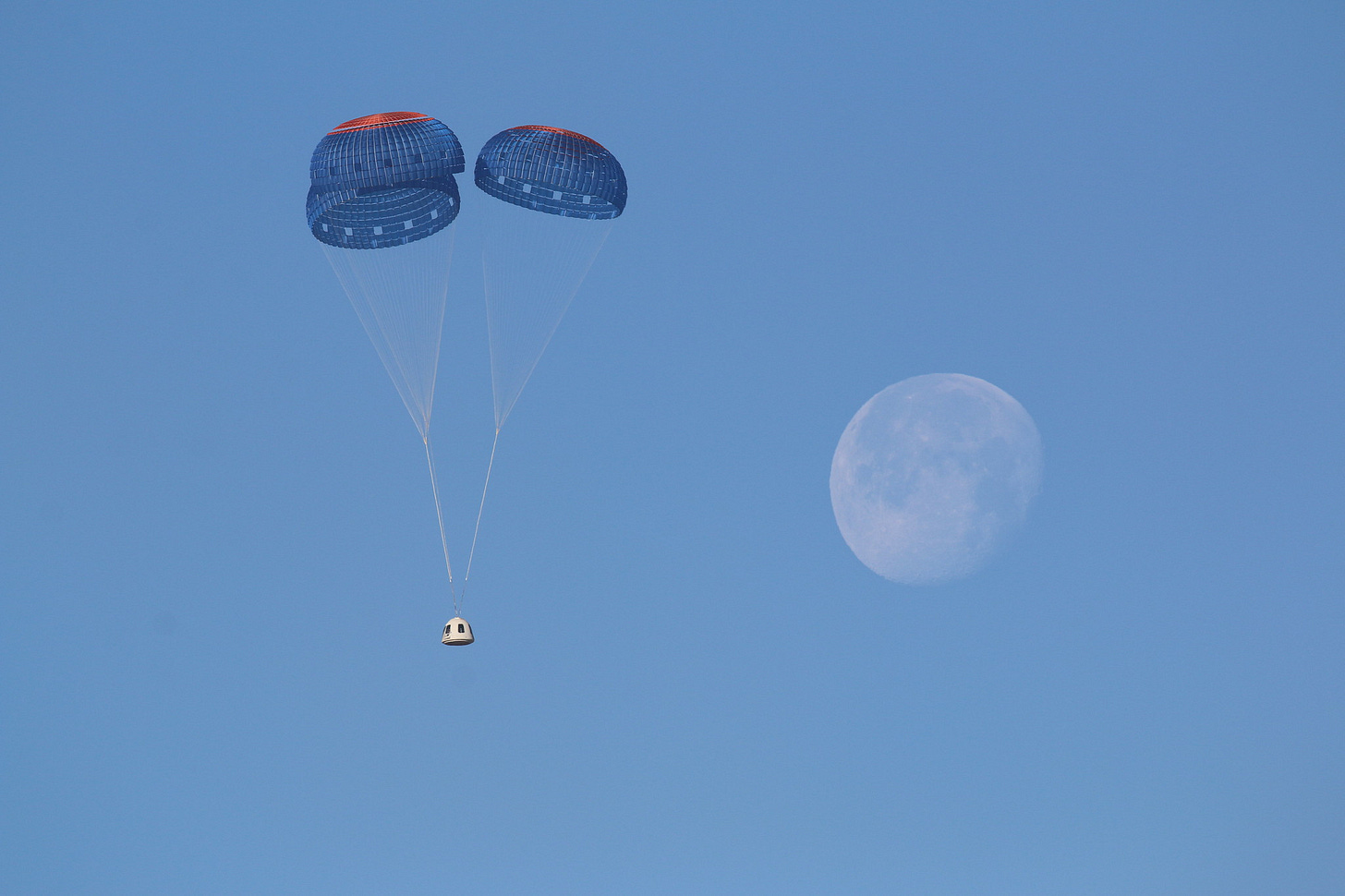
This is Boondoggle, the newsletter about corporations ripping off our states and cities. If you’re not currently a subscriber, please click the green button below to sign up. Thanks!
The “space billionaires” are having a moment. Earlier this month, Richard Branson rode a Virgin Galactic rocket more than 50 miles up into the air. On Wednesday, it was Amazon founder Jeff Bezos’ turn, as he hitched a ride on a Blue Origin rocket that cleared 60 miles, breaking through the internationally recognized boundary of space.
These corporations, along with Elon Musk’s SpaceX, are leading a new era of private space flight.
The dueling billionaire space jaunts led to a lot of discussion regarding whether a privatized space race is net good or bad for the country, and whether the expending of resources on billionaire joy rides is worth it for a society with a lot of problems down here on terra firma. Bezos thanked “every Amazon employee and every Amazon customer because you guys paid for all of this,” which earned him a predictable reaction regarding his wealth and Amazon’s treatment of workers and small businesses.
But that debate has largely left out the fact that these corporations are not only relying on private money or the sweat of their founders’ employees: Taxpayers have sunk a healthy chunk of change into them as well.
Here’s a breakdown of what each of the big three has received:
Blue Origin: More than $72 million in state and local subsidies, of which $65 million came from Florida and $7 million came from Washington State.
SpaceX: About $3 million in state/local subsidies, nearly all from Texas, as well as $106 million in federal loans and loan guarantees.
Virgin Galactic: About half a million in state subsidies from California.
These totals don’t include the federal contracts the corporations receive. According to the Wall Street Journal, SpaceX has received $2.8 billion in contracts from NASA and the Pentagon, while Blue Origin has received $496.5 million.
Recently, the Senate approved a bill that included $10 billion for Blue Origin after Bezos threw a fit that SpaceX was chosen for a contract for a moon lander instead of his firm. The bill is still pending in the House.
It’s not surprising that Bezos’ Blue Origin leads the way in terms of state and local giveaways. After all, Amazon has made leveraging public largesse out of communities a cornerstone of its play for retail dominance, receiving more than $4 billion in state and local subsidies, most of which helped it build out its warehousing and distribution network. Elon Musk, too, has made tax breaks a way of life, with Tesla and SolarCity both receiving hefty subsidies and giving local communities little in the way of results.
It’s all well and good, I suppose, if billionaires want to use their money to fund private space exploration (so long as they pay their taxes first). And it’s generally good to have new entrants in the world of government contracting, which is a wretched hive of scum and dominant corporations, raising costs for the federal government.
Also, it’s nice that the embarrassing reliance on Russian rockets to put Americans into space is over.
But I really don’t like the idea that local taxpayers are laying out dollars for private corporations to do what NASA did decades ago, in a bid to commercialize space and turn it into a rich dude playground. There’s no reason to think these handouts will be more effective in achieving their aims than any other state or local corporate incentive. They’re just going to bolster the side projects of guys who have gamed the subsidy system to a massive extent already.
Plus, profit-seeking firms won’t have the same commitment to general science that NASA has; space exploration should be a collective endeavor, not foisted onto residents of one particular place because a CEO decided it was a good location to plunk down a corporation.
I suppose what I’m saying is that this is not strictly a private space race; it’s been helped along in large part by local taxpayers, who also deserve a thank you, or better yet, their money back.
FLASHBACK: The Summer Olympics start this week, so I revisited what I wrote last year, before the Tokyo Games were postponed due to the pandemic, about the costs Olympic host cities bear and how to prevent them from needlessly bearing those costs in the future. It still holds up, I think. You can read it here.
Also, my condolences to Brisbane, Australia.
UPDATE: The interstate compact against corporate tax giveaways received some mainstream media love this week via this op-ed by James Hohman from the Mackinac Center in Michigan. Hohman also posted an interview with Dan Johnson, the main organizer behind the the coalition to form the compact. Both are worth reading, in my opinion.
Or, as my friend and former colleague John Stoehr put it:
If you need a refresher on the compact, here’s my newsletter coverage of it, as well as an explainer I wrote.
ONE MORE THING: Disney has confirmed that it is getting some sort of incentive from Florida for moving 2,000 jobs from California to the Sunshine State. But it’s not publicly saying how much it’s received or from which program, and neither the city of Orlando nor Orange County, Florida, acknowledged any payments. So we have a mystery on our hands.
And of course, the proper reaction to Disney getting any sort of taxpayer largesse, given its history, is this one:


Thanks for reading this edition of Boondoggle. If you liked it, please take a moment to click the little heart under the headline or below. And forward it to friends, family, or neighbors using the green buttons. Every click and share really helps.
If you don’t subscribe already and you’d like to sign up, just click below.
Finally, if you’d like to pick up a copy of my book, The Billionaire Boondoggle: How Our Politicians Let Corporations and Bigwigs Steal Our Money and Jobs, go here.
Thanks again!
— Pat Garofalo





